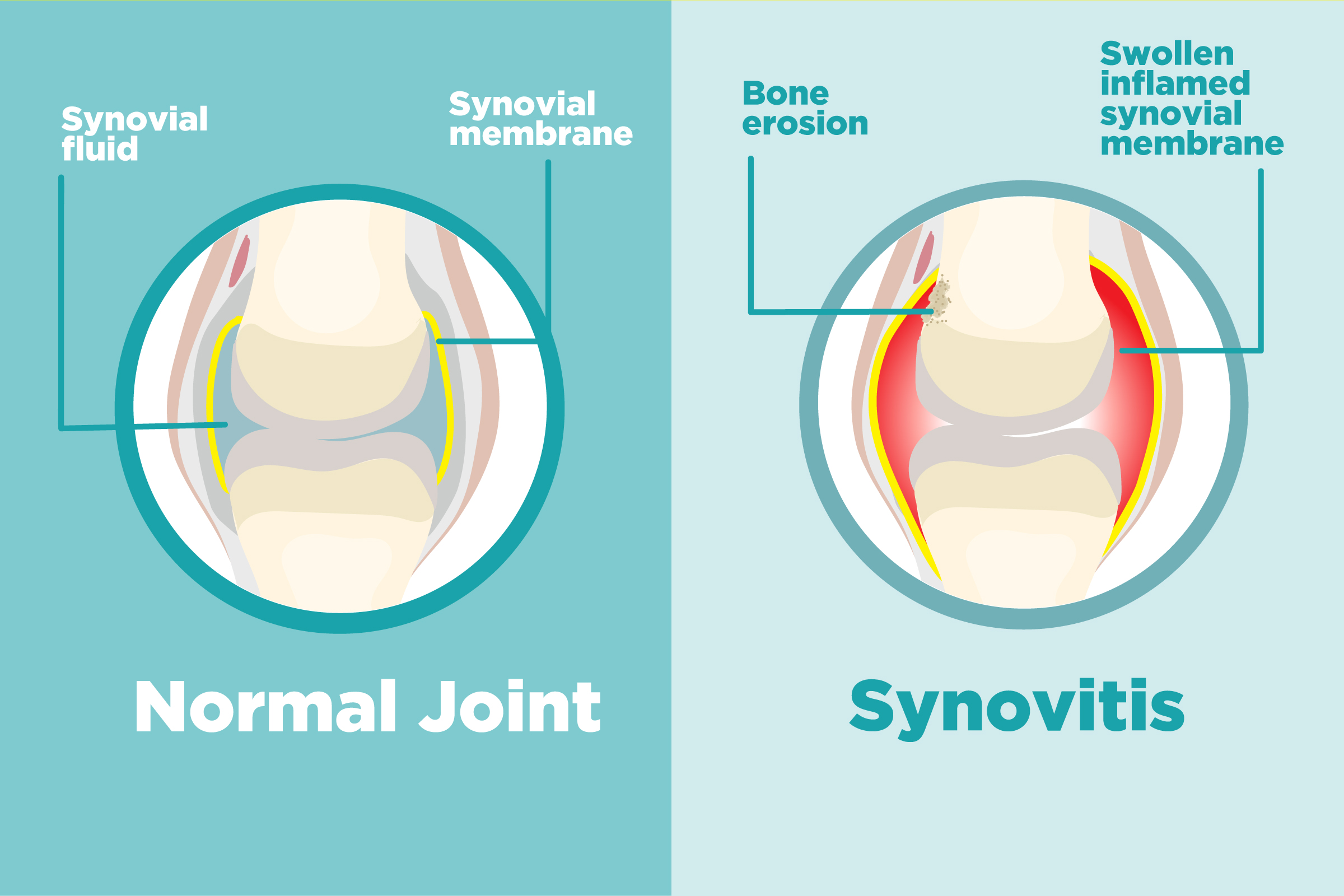What is Synovial Problems treatment?
Synovial problems refer to issues or conditions related to the synovium, a vital tissue found in joints throughout the body. The synovium is a thin, specialized membrane that lines the inner surface of joints, such as the knee, shoulder, hip, and elbow. Its primary function is to produce synovial fluid, a lubricating fluid that helps reduce friction within the joint and nourishes the cartilage.
Several conditions and problems can affect the synovium, leading to discomfort, pain, and joint dysfunction. Some common synovial problems include:
-
Synovitis: Synovitis is the inflammation of the synovial membrane. It can result from various causes, including injury, infection, autoimmune diseases (e.g., rheumatoid arthritis), or overuse of the joint. Symptoms of synovitis may include pain, swelling, warmth, and decreased joint mobility.
-
Synovial Cysts:
Synovial cysts are fluid-filled sacs that can develop within or near a joint. They are often associated with conditions like osteoarthritis or rheumatoid arthritis. These cysts can cause pain and discomfort and may need to be drained or surgically removed in some cases.
-
Pigmented Villonodular Synovitis (PVNS):
PVNS is a rare condition in which the synovium overgrows and forms abnormal tissue within the joint. This condition can lead to pain, swelling, and joint stiffness. Treatment may involve surgery to remove the abnormal tissue.
-
Synovial Chondromatosis:
This condition occurs when small, benign cartilage nodules develop within the synovium and detach to float freely within the joint space. These loose bodies can cause pain, clicking or catching sensations, and joint inflammation. Surgery is often necessary to remove the loose bodies and damaged synovium.
-
Infection of the Synovium (Infectious Synovitis):
Bacterial or viral infections can affect the synovium, causing pain, swelling, redness, and limited joint function. Prompt treatment with antibiotics or antiviral medications is essential to address infectious synovitis.
-
Synovial Sarcoma:
Synovial sarcoma is a rare type of soft tissue cancer that can develop in or around the synovium. It can cause pain, swelling, and other symptoms. Treatment typically involves surgery, radiation therapy, and sometimes chemotherapy.
-
Synovial Hyperplasia:
In some cases, the synovium can become thickened and overgrown, leading to joint symptoms. This can occur due to various underlying conditions, including autoimmune diseases.
The diagnosis and treatment of synovial problems depend on the underlying cause and the specific symptoms experienced by the individual. Medical professionals, including orthopedic surgeons and rheumatologists, typically evaluate and manage these conditions. Treatment may involve conservative measures such as rest, physical therapy, anti-inflammatory medications, or more invasive approaches like arthroscopy or surgical intervention.
If you suspect you have a synovial problem or are experiencing joint-related symptoms, it's important to seek medical attention for a proper diagnosis and appropriate treatment. Early intervention can help prevent further joint damage and improve the overall quality of life.

